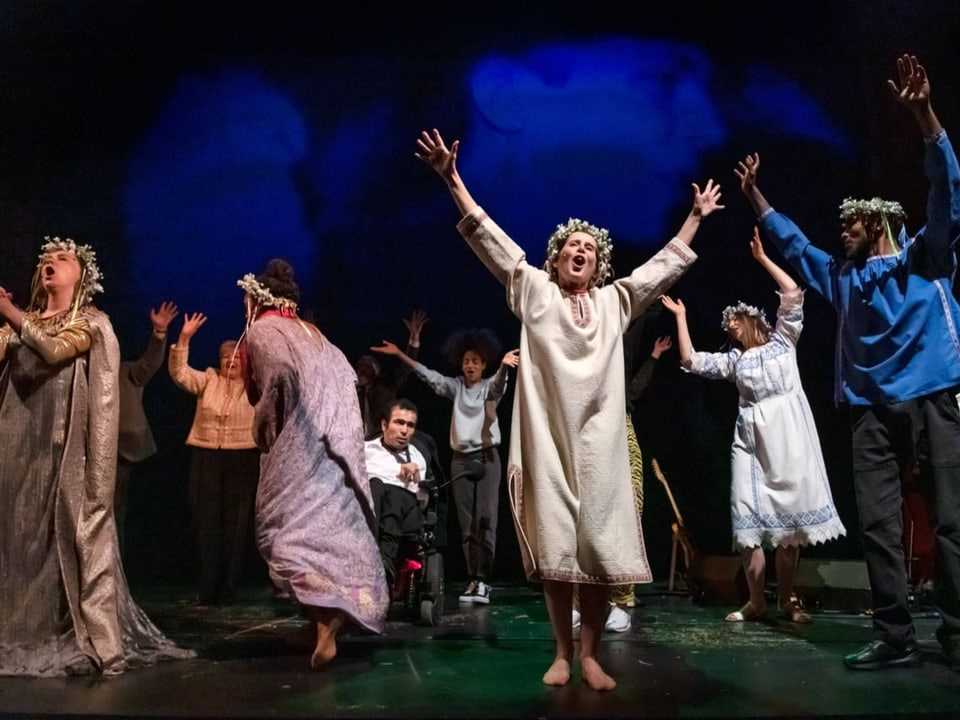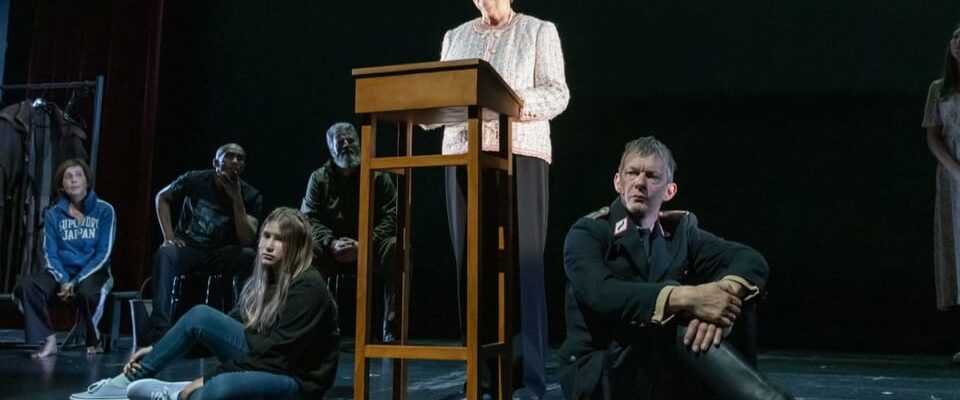contents
Schiller’s “Wilhelm Tell” as a blueprint for a diverse Switzerland: Milo Rau’s production suggests many things: Corona, looted art, a lack of care, a lack of diversity. But the piece lacks compression.
There is method in the fact that Milo Rau alludes to the legendary 1939 production with Heinrich Gretler as Tell right at the beginning. And at the same time fatal for the evening.
The production at the Zurich Schauspielhaus at the time became a symbol of intellectual national defense. At the premiere, the audience is said to have stood up spontaneously during the Rütli oath scene and sang the national anthem at the time. At that time, the theater took a stand against German fascism. “William Tell” united the country.
Historical traces to the present day
A melancholy longing for a comparable positioning runs through Milo Rau’s production. The history of interpretation is summoned: Quotations from Tell films and old soundtracks meet the present. Because this is what Milo Rau is all about. It is not a single actor who plays the tell, but there are many.
Personal stories and their political dimension
In addition to actors from the ensemble, Rau also cast amateur actresses who slip into the shoes of the freedom fighters to tell of their own ideas of freedom. This is partly humanly touching and then again seems a bit arbitrary.
There’s a hunter like Tell was. There’s a disability activist who, like Tell, is fighting for his rights. There is a young nurse who talks about the nursing shortage under Corona. Or there is Irma Frei, who was taken care of by the authorities in the 1960s and had to work as a forced laborer in an Emil G. Bührle factory.
Legend:
Irma Frei, a forced laborer in a Bührle textile factory, tells her story on the main stage.
Zurich Playhouse/William Tell/© Flavio Karrer
Bührle’s controversial art collection, and how Switzerland deals with it, wafts through the staging in a similar way to the nostalgic images of history. Typically Swiss, be this. The new extension of the Kunsthaus, where the Bührle collection hangs: today’s stronghold. But the analogy doesn’t really apply, the criticism runs in open doors and remains vague.
Morally simplified
That today’s Switzerland is more diverse than the handful of men who united against foreign rule at Schiller: who would need to be convinced of that today?
In this way, the associative threads of biographical, political and historical associations are interwoven with some iconic scenes from Schiller’s play. Nothing more remains of the freedom drama from 1804.

Legend:
The symbolic marriage of a sans-papier to a Swiss officer is celebrated with a gospel version of the national anthem.
Zurich Playhouse/William Tell/© Flavio Karrer
Recharge the tell myth
Milo Rau is much more interested in the myth of Tell and how it can be charged with current issues. The fact that at the end the audience is asked to stand up and sing the Swiss Psalm together tries to establish a link to the legendary production from 1939.
In the Rau production, the national anthem is sung as gospel. The occasion is not the Rütli oath, but the symbolic marriage of an Eritrean sans-papier to a Swiss officer.
Like an incomplete mosaic
The evening remains a heap of small pieces of the mosaic and concrete stories that don’t want to be put together to form an overall picture. That may be a realistic reflection of the zeitgeist. A dense evening of theater does not result from this.
